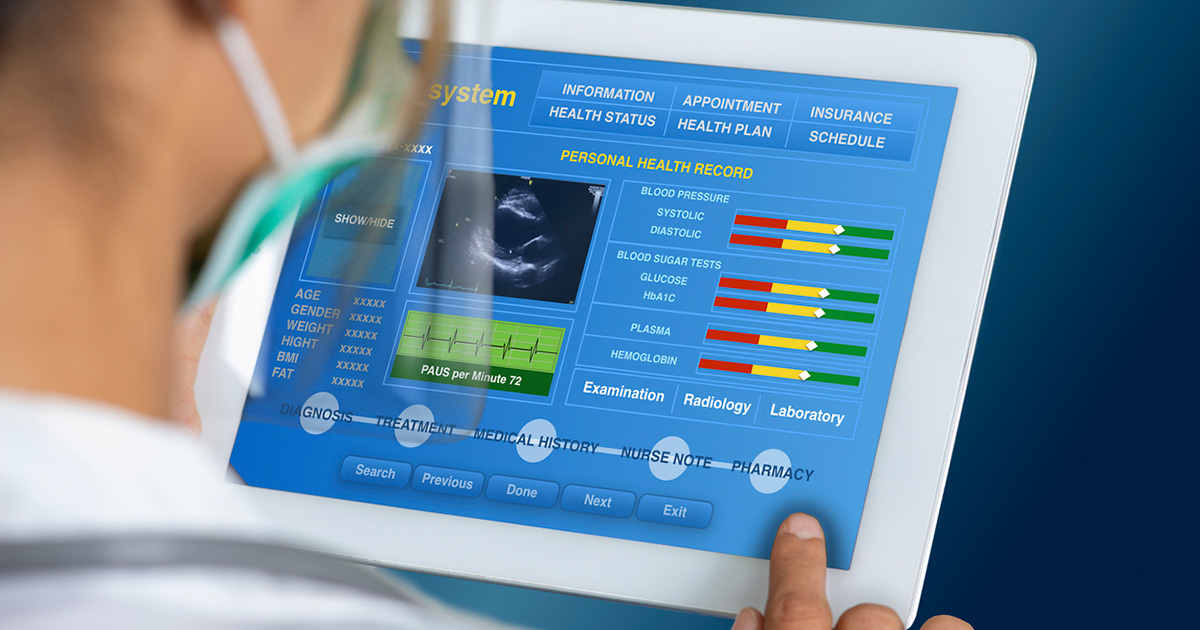
The Pitfalls of Investment Reports: What I Learned as a Wealth Manager
During my career in banking and wealth management, I quickly discovered a painful truth: most investment reports were hard to digest, overly technical, and, often,

In today’s rapidly evolving healthcare landscape, Electronic Health Records (EHRs) play a crucial role in managing patient information and streamlining healthcare operations. However, with technological advancements and changing organizational needs, there comes a time when healthcare providers must consider adding one for the first time or switching to a different EHR system. There is no ‘one-size-fits-all’ system that adequately caters to the varied requirements of different healthcare practices, and selecting the best path forward can be daunting. This blog post delves into the functions of EHRs, the impacts of switching systems, and key questions to ask before making the switch.
EHRs are vital components of Healthcare IT. In a 2022 qualitative study focusing on clinicians’ lived experiences, the interview results align with previous literature regarding how EHR enhances the quality of care, particularly when it comes to features that assist with clinical activities and information exchange. EHR systems can span a wide array of functions:
Contain Patient Information: EHRs store extensive details about a patient’s medical history, including diagnoses, medications, treatment plans, immunization dates, allergies, radiology images, and lab results.
Automate and Streamline Provider Workflow: EHRs improve operational efficiency by automating tasks such as appointment bookings, reminders, rescheduling, financial reporting, billing, and payments.
Create and Manage Health Information: EHRs facilitate the creation and management of health information, improving care quality and patient engagement through online portals with secure messaging and telehealth services.
Access to Evidence-Based Tools: EHRs provide access to tools that aid providers in making informed decisions about patient care, enhancing clinical performance.
Share Information with Other Healthcare Providers and Organizations: EHRs can support the seamless sharing of information among various healthcare entities, leading to better care coordination and health information exchange.
Switching EHR systems is a significant undertaking for any healthcare organization. This change holds the opportunity for huge benefits, but it can also come with several challenges and impacts to consider:
Hospitals may consider switching to a different EHR system to take advantage of technological advancements, such as improved features, interoperability—the secure sharing and integration of healthcare data with other providers—and data management capabilities.
For example, the Apple Watch and Fitbit’s wearable devices are exploring partnerships and integrations with EHR systems to enable seamless data exchange and real-time monitoring.
The cost of switching, including the total cost of ownership, maintenance, training, and potential return on investment, plays a crucial role in the decision. Industry investment trends can play a significant part in this overall cost and influence the timing around making this switch.
EHR systems can influence clinical performance, including care processes and patient outcomes, through improved EHR software features and healthcare data analytics.
Overcoming staff resistance to training and managing workflow disruptions are common issues during an EHR switch, emphasizing the need for effective EHR implementation strategies. Comprehensive training and EHR usability can make or break the transition process for a team of healthcare professionals.
The effect of a new EHR system on patient experience and satisfaction is another critical consideration, particularly with the rise of mobile health applications and telemedicine technology.
Ensuring data integrity and managing the expenses associated with transferring patient data is a necessary but time-consuming challenge teams must be prepared to tackle.
Limited access to legacy records during the transition can threaten patient safety, making data integrity during migration a critical priority and concern.
Before making the decision to switch EHR systems, consider the following questions:
Switching EHR systems is a complex decision that requires careful consideration of various factors, including technological advancements, financial impacts, and patient satisfaction. By asking the right questions and planning meticulously, healthcare organizations can navigate the transition efficiently and effectively.
To learn more about these recent technological advances and why this next generation of EHR systems is poised to offer even more remarkable capabilities, read our post, Embracing the Next-Generation Trends in Electronic Health Records.
Interested in understanding the latest insights into EHR investment trends? Learn more about digital health innovation financing and venture-backed EHR platforms that enhance patient care and operational efficiency by purchasing our full market research report, Electronic Health Records Market 2024.

During my career in banking and wealth management, I quickly discovered a painful truth: most investment reports were hard to digest, overly technical, and, often,

From the cloud services we rely on daily to the AI algorithms personalizing our digital experiences, AI-driven data centers are quickly becoming the cornerstone of

From the cloud services that fuel our workdays to the algorithms that personalize our digital experiences, AI-driven data centers are the unseen force driving modern

As we step into 2025, the investment landscape continues to be shaped by rapid technological advancements, shifting market demands, and emerging global challenges. Market industry

Artificial Intelligence (AI) is no longer a distant dream—it’s a powerful force reshaping industries. From diagnosing complex medical conditions to redefining patient care, AI is